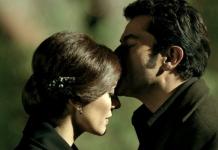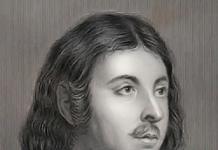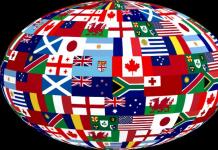Is the one who knows a lot always the wise one? Who do you think is wise? What does it mean to be wise anyway? The problem of defining wisdom in his text is raised by Academician of the Russian Academy of Education Boris Mikhailovich Bim-Bad.
In the text presented to us, Boris Mikhailovich begins his reasoning with the statement, he says that "the highest that a person can achieve is wisdom." The author notes that a wise person is not arrogant, that is, he admits the fallacy of his judgments. Wisdom, the academician informs the reader, "requires knowledge, but does not come down to it." Thus, Boris Mikhailovich cites as an example someone who can know all varieties of butterflies, but if he does not understand the problems of ecology at all, then he misses the connection of the butterfly with the structure of the world, which means that this person cannot be wise. Further, the author encourages the reader to freedom of thought, to “flight”.
Boris Mikhailovich is sure that "one's own thought requires a long and painful argument with oneself." So he cites the example of Pushkin, who once wrote to his friend: "I am learning to keep the attention of long thoughts." This is hard and serious work. But such work can be a pleasure, as, for example, to Socrates, who once got carried away by reflection and stood in one place for almost a day.
The position of the author is clear to us. The author believes that wisdom is achieved through reflection, work on thought. Wisdom requires knowledge, but is not limited to it. Caution of judgment, aversion to self-deception and arrogance are the traits of a wise person.
I fully agree with the opinion of the author, because indeed, a wise person should be able to be critical of himself and in no case put his opinion above others. Many writers, poets and publicists raise this issue in their text. So, for example, in M. Gorky's story "Old Woman Izergil" main character did not have much knowledge. She, narrating the story of her life, admitted her mistakes. After going through many trials, doing the right things and making mistakes, she gained wisdom. The wisdom of life.
Also, this problem exists in the work of L.N. Tolstoy "War and Peace". Pierre, the hero of the novel, being captured, meets such a character as Platon Karataev. And thanks to Platon Karataev, Pierre managed to learn "folk wisdom". Plato taught him to live simply, to appreciate every moment. Karataev assures Pierre that one should not be in the eternal search for happiness. After all, the main happiness is that you just live.
So, thanks to Boris Mikhailovich Bim-Bad, I can now confidently say that wisdom is not only knowledge, but also restraint in judgment and rich life experience.
The theme of reflections of Boris Bim-Bad, candidate of pedagogical sciences, is devoted to the problem related to the definition of the concept of wisdom. The author also acts as a senior researcher at a research institute dealing with the study of problems of general pedagogy. According to the scientist, wisdom should be regarded by us as the ultimate height of what a person can achieve. Wisdom feels the need for knowledge, but is not limited solely to their presence.
Someone may be aware of all known types of butterflies, but at the same time not understand ecology completely, as well as not be interested in it. Accordingly, this “someone” misses the connection between a single butterfly and the whole world as a whole.
According to the firm belief of B. Bim-Bad, wisdom should be taught at school, that is, taught to refrain from such statements that have insufficient justification, as well as to caution in judgments. According to the researcher, wisdom is not just knowledge, since this concept contains something more: intuition and aversion to self-deception.
It is difficult to disagree with the position of the author, wisdom acts as something more ambitious than just knowledge. Wisdom is also considered a set of skills, rich experience and the ability to reason. Leo Tolstoy in the work "War and Peace" created the image of a wise character named Platon Karataev, thanks to whose views on life, Pierre survived in captivity. The wisdom of Plato taught him that you need to live simply, appreciate everything you have, because it is stupid to be in a state of searching for happiness all the time: a person should rejoice in the light of the sun, raindrops and the fact that he lives.
A. de Saint-Exupery wrote the work "The Little Prince", where the Old Fox was assigned the role of a teacher of wisdom for the Little Prince. Thanks to him main character learned to comprehend the wisdom of human relations. In order to understand a person, it is important to learn to peer into his inner world, while at the same time forgiving minor flaws.
Updated: 2017-02-22
Attention!
Thank you for your attention.
If you notice an error or typo, highlight the text and press Ctrl+Enter.
Thus, you will provide invaluable benefit to the project and other readers.
Wisdom and knowledge
For centuries, people have tried to comprehend, evaluate their destiny on earth, and also sought to understand the essence of phenomena and facts. surrounding reality.
The main problem presented in the text is that the wisdom of an individual is, first of all, his personal experience which he has accumulated
during his life, summarized and drew the necessary conclusions.
Commenting on this problem, we can say that a wise person has wonderful qualities - the ability to observe, reflect on what he saw, and not make hasty conclusions. A wise person is careful in words and deeds. He is not frivolous and not arrogant, he can admit his mistakes and does not consider his opinion to be the only correct one. If a difficult problem arises before him, he, holding the “attention of long thoughts”, solves it, weighing all the pros and cons.
knowledge. It can be either scientific knowledge or knowledge of real facts of the surrounding reality. However, knowledge will never replace the precious gift of a wise person - this very wisdom.
I agree with this opinion of the author. I confirm his statement with the following first argument. Knowing only the facts and not seeing the patterns that connect them is the mistake of many. And the scientist, with his logical thinking, will deduce a law from individual facts, create a scientific theory, open new pages in the field in which he works. And if information about facts answers the questions “What? Where? When? How?”, then science explains these facts and answers the question “Why?”
It must be taken into account that there are still opinions, people's judgments about the surrounding facts, objects, but they are not so important: objective truth is more expensive and more important.
Argument two. Here is what Boris Godunov says to his son in Pushkin's tragedy of the same name: "Learn, my son: science shortens our experience of a fleeting life."
In conclusion, let us add: not only science as such, but also the science of life.
Glossary:
- source of our wisdom our experience essay
- source of our wisdom our experience arguments
- source of our wisdom our experience essay on literature
Other works on this topic:
- The theme of reflections of Boris Bim-Bad, candidate of pedagogical sciences, is devoted to the problem related to the definition of the concept of wisdom. The author also acts as a senior researcher at a research institute...
- What is wisdom? Here is the issue raised by B.M. Bim-Bad. The author in his text reflects on what wisdom is. He is convinced that it is “the highest,...
- Composition-reasoning on the topic “What is wisdom” We call a wise person who has received a lot of knowledge and understood the truth about Life and the world around him. But everything...
- Composition “Why you need to study” or “Knowledge is power” Every person needs knowledge in Everyday life. Knowledge is not only formulas and rules gleaned from...
- Wisdom is more than a store of knowledge. This quality is represented by intuition, caution of judgments, exclusion from one's own worldview of self-deception and arrogance. You can only become wise...
- "Wisdom is the daughter of experience" - the saying of one of the most famous painters in the world. What is experience and what is wisdom? A person can be experienced in any matter ...
- I believe that wealth is in the brain, not in the bowels. The problem is that we need to learn to appreciate and sell our knowledge. In our country...
31.12.2020 - On the site's forum, work on writing essays 9.3 on the collection of tests for the OGE 2020, edited by I.P. Tsybulko, has ended.
10.11.2019 - On the site's forum, work on writing essays on the collection of tests for the Unified State Examination in 2020, edited by I.P. Tsybulko, has ended.
20.10.2019 - On the site's forum, work has begun on writing essays 9.3 on the collection of tests for the OGE 2020, edited by I.P. Tsybulko.
20.10.2019 - On the site's forum, work has begun on writing essays on the collection of tests for the USE in 2020, edited by I.P. Tsybulko.
20.10.2019 - Friends, many of the materials on our website are borrowed from the books of the Samara methodologist Svetlana Yurievna Ivanova. Starting this year, all her books can be ordered and received by mail. She sends collections to all parts of the country. All you have to do is call 89198030991.
29.09.2019 - For all the years of operation of our site, the most popular material from the Forum, dedicated to the essays based on the collection of I.P. Tsybulko in 2019, has become the most popular. More than 183 thousand people watched it. Link >>
22.09.2019 - Friends, please note that the texts of the presentations at the OGE 2020 will remain the same
15.09.2019 - A master class on preparing for the Final Essay in the direction of "Pride and Humility" has started working on the forum site
10.03.2019 - On the site's forum, work on writing essays on the collection of tests for the Unified State Examination by I.P. Tsybulko has been completed.
07.01.2019 - Dear visitors! In the VIP section of the site, we have opened a new subsection that will be of interest to those of you who are in a hurry to check (add, clean up) your essay. We will try to check quickly (within 3-4 hours).
16.09.2017 - A collection of short stories by I. Kuramshina "Filial Duty", which also includes the stories presented on the bookshelf of the site Traps USE, can be purchased both in electronic and paper form at the link >>
09.05.2017 - Today Russia celebrates the 72nd anniversary of the Victory in the Great Patriotic War! Personally, we have one more reason to be proud: it was on Victory Day, 5 years ago, that our website was launched! And this is our first anniversary!
16.04.2017 - In the VIP section of the site, an experienced expert will check and correct your work: 1. All types of essays on the exam in literature. 2. Essays on the exam in the Russian language. P.S. The most profitable subscription for a month!
16.04.2017 - On the site, the work on writing a new block of essays on the texts of the OBZ has ENDED.
25.02 2017 - The site began work on writing essays on the texts of OB Z. Essays on the topic “What is good?” you can already watch.
28.01.2017 - Ready-made ones appeared on the site condensed statements according to the texts of the OBZ FIPI,
On our way there can be many different personalities with deep knowledge, the ability to speak and think, the ability to reason and argue, deny and worship - but it is very difficult to determine which of these people is truly wise.
What is wisdom? B.M. invites us to think about this question. Bim-Bad.
Analyzing the problem, the author cites as an example the situation with his friend, the director of the school, who boasted that in his educational institution children without preparation write essays on complex, philosophical topics. They write without immersion in the topic, without studying it in detail, without arguments - they simply express their opinion. The professor emphasizes that such an expression of thoughts cannot be called wisdom - there is no intellectual honesty in such an opinion, there is no share of doubt, there is no reliance on third-party opinions, as well as allusions to the work of famous thinkers. The author draws our attention to the fact that wisdom is not an empty statement of opinion, it is not knowledge, even deep, in the concept of "wisdom" there is no place for arrogance and self-confidence.
B.M. Bim-Bad believes that wisdom lies primarily in the caution of judgments, in the ability to base one's opinion on knowledge, taking into account many factors.
I fully agree with the author's opinion and also believe that a person who is able to realize his mistakes, who is able to doubt what he says, can be called wise. Wisdom embodies both knowledge and the ability to express one's opinion - but knowledge must be versatile, deep, connected to each other by a chain of logic, and opinion must be based on the experience of other people, on many factors, on one's own intuition and "aversion to self-deception" .
We all know the words of Socrates: "I only know that I know nothing." This statement can be safely reckoned among the life creeds of all wise people, which, of course, was Socrates himself. In the chronicles of the life of this philosopher, it is written that, despite a large amount of knowledge, he spent his whole life searching for truth in his own opinion, which left an imprint in history. And even in the work of E. Radzinsky "Conversations with Socrates" the author emphasizes that the ancient Greek philosopher was a true sage, because he never considered his opinion to be true, tk. he always questioned his own statements and knowledge.
The hero of the epic novel L.N. Tolstoy "War and Peace". Platon Karataev was the embodiment of folk wisdom: with the help of him, Pierre was able to gain a new look at things familiar to him, confidence, inner freedom, was able to join people's beginning. The wisdom of Platon Karataev is embodied in his soft, calm, measured movements, a smile that does not leave his face, affection and simplicity in words - and this is during the war. The hero literally speaks in proverbs, thereby making an allusion to the experience of his people; in his worldview there is Christian mercy, compassion and love for people, as well as the idea of life in conscience and justice. Platon Karataev is wise because he is not attached to ordinary things and thoughts - he loves everything and everyone, he is ready to accept the thoughts and feelings of any person and project them onto himself. However, in the end, based on the experience of Pierre, everyone who has ever met this folk sage adopted precisely his philosophy of life.
Thus, we can conclude that wisdom cannot be gained by constant reading - knowledge does not make a person wise, wisdom cannot be depicted by thoughtlessly expressing one's own opinion - the presence of thoughts is not an indicator of wisdom. A person becomes wise when he is able to be critical of everything he says and does, as well as to constantly learn something.




















